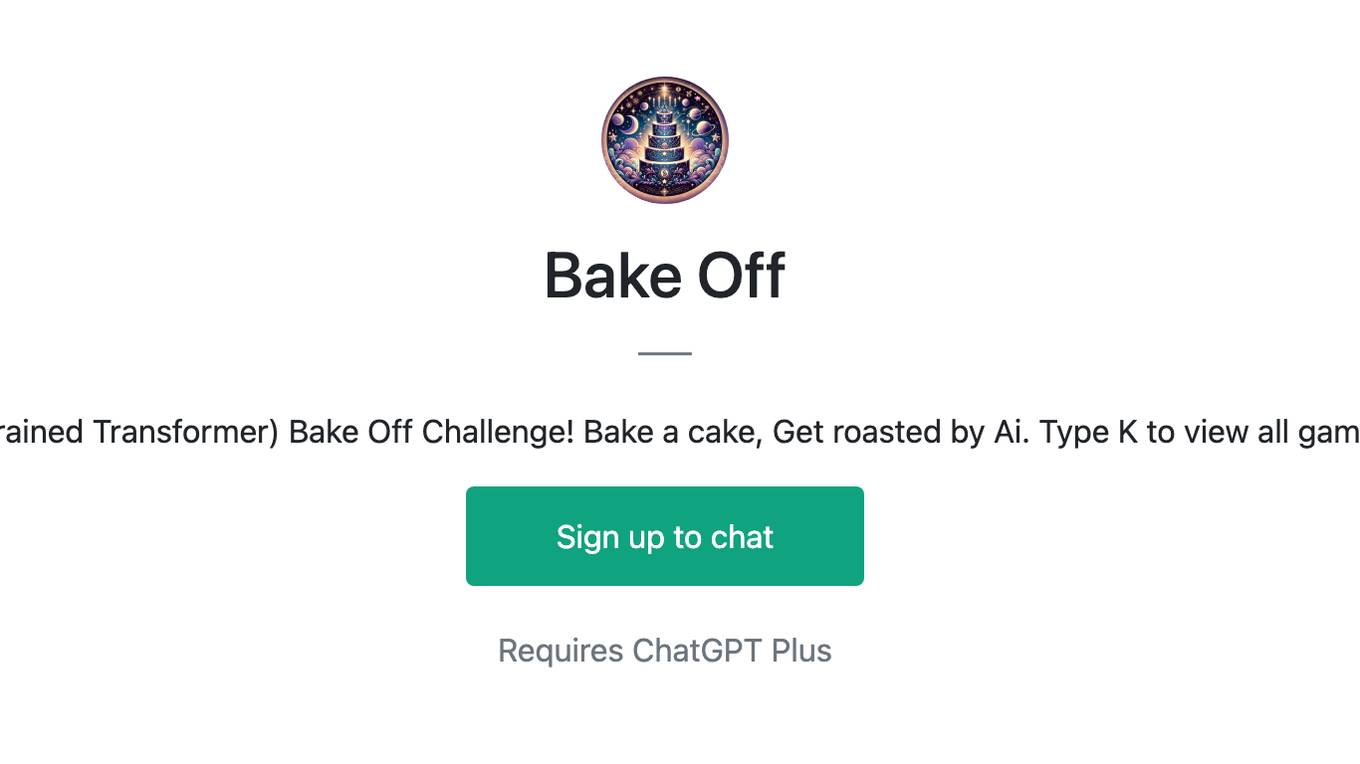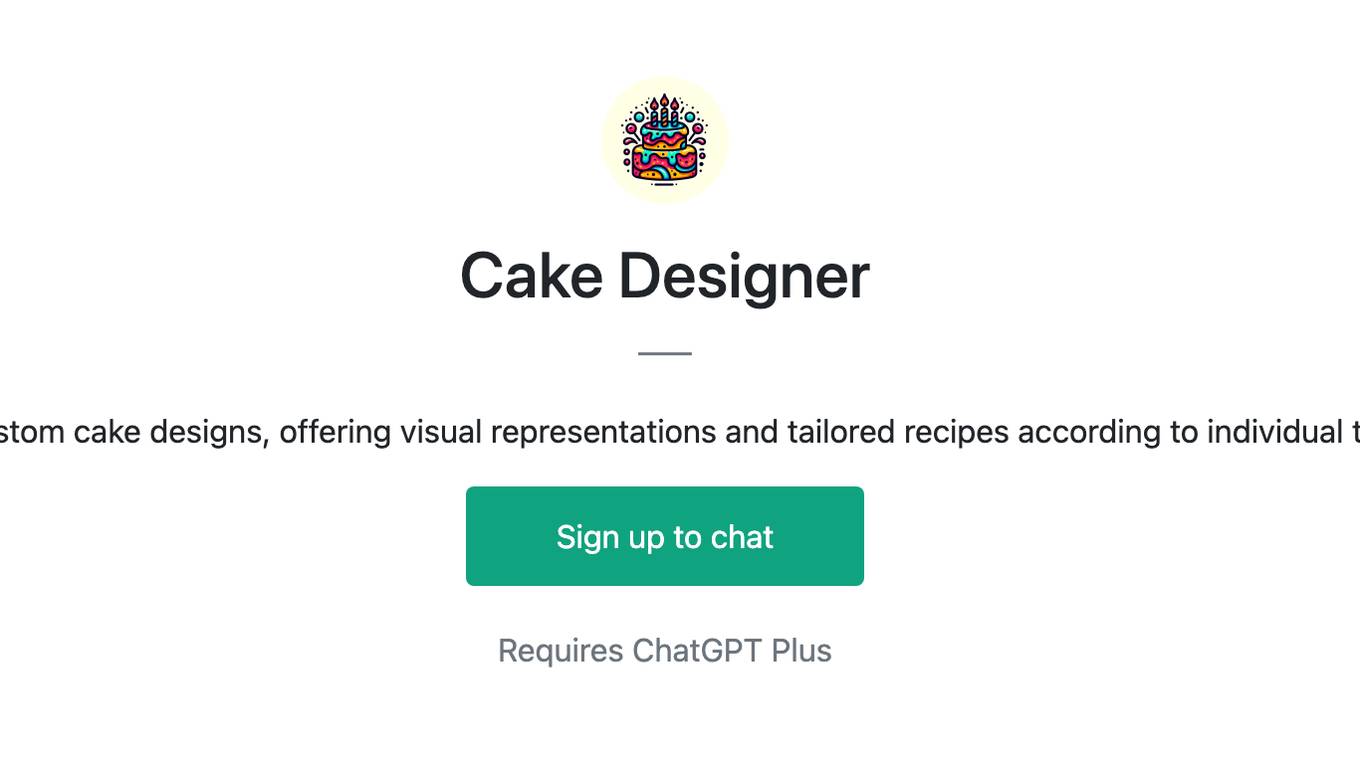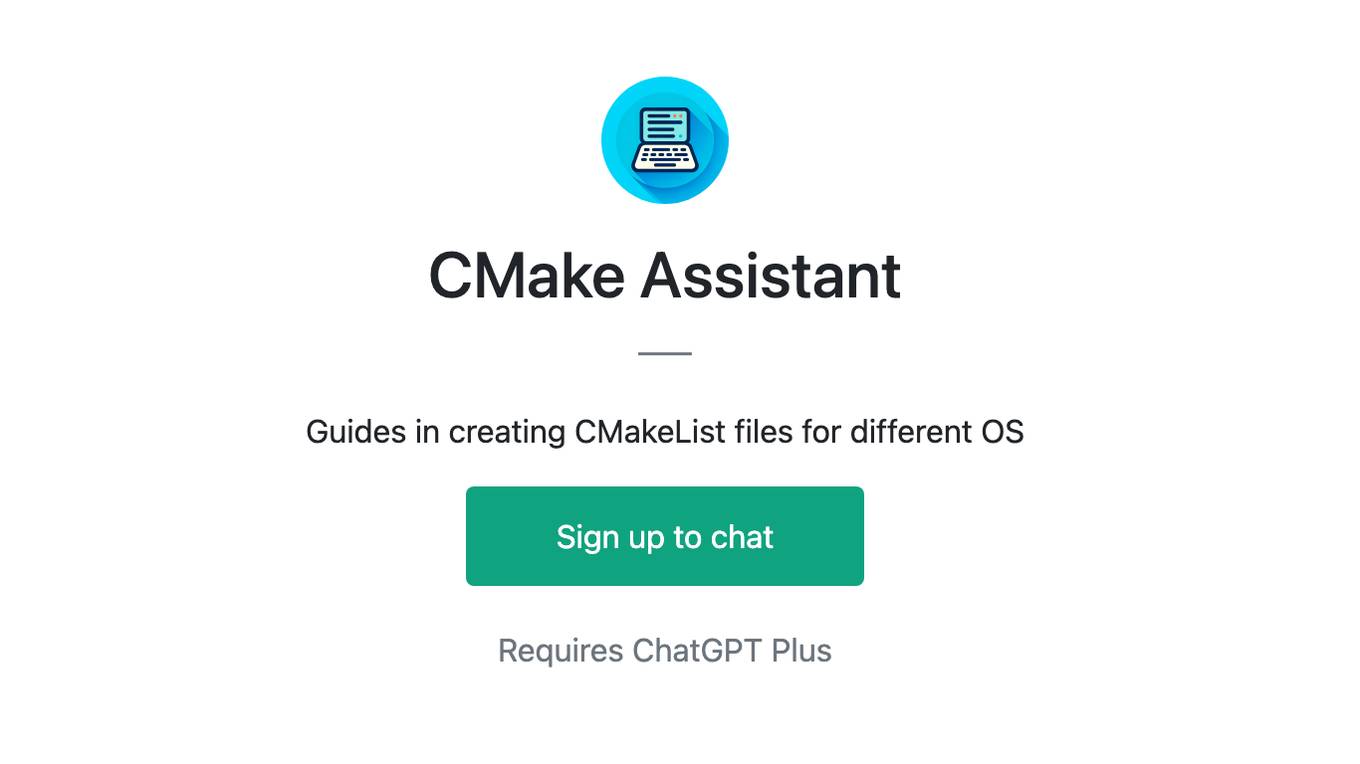Best AI tools for< Cmake Developer >
Infographic
1 - AI tool Sites

StockCake
StockCake is a website that provides free images for any occasion. The images are high-quality and can be used for personal or commercial purposes. The website also offers a variety of other features, such as a photo editor, a blog, and a community forum. StockCake is a great resource for anyone who needs high-quality images for their projects.
0 - Open Source Tools
7 - OpenAI Gpts

Bake Off
The Great (Pretrained Transformer) Bake Off Challenge! Bake a cake, Get roasted by Ai. Type K to view all game modes. v1.0

Bake Off - Great British Technical Challenge GBBO
Minimalist baking challenges with a step title and tailored hint!

Cake Designer
I specialize in crafting custom cake designs, offering visual representations and tailored recipes according to individual tastes and preferences.

Pastry Sculpture Advisor
Guides confectionery artists in crafting intricate pastry sculptures with techniques, tutorials, and tips for working with sugar, fondant, and chocolate.

Cooking Lessons in Chemistry
Fun and detailed chemistry insights in cooking, with equipment tips.

